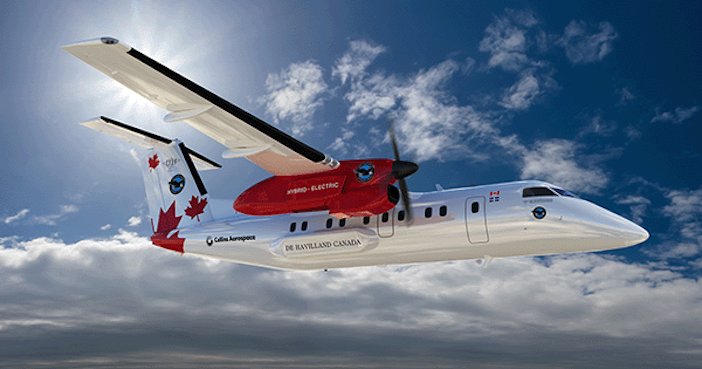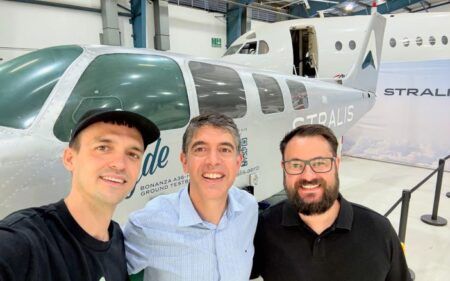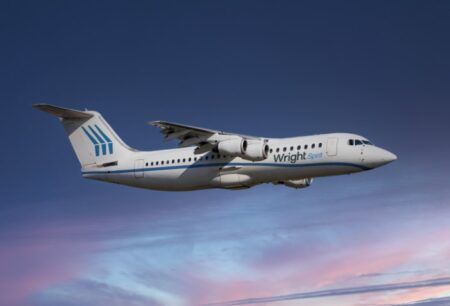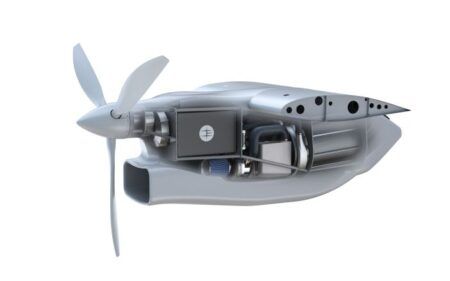Pratt & Whitney has recruited engineering consultancy Ricardo to support development of a hybrid-electric regional aircraft in Canada.
The multi-year deal between Ricardo and Pratt & Whitney (P&W) is part of a Canadian Government funded program to develop a hybrid-electric version of the De Havilland Canada Dash 8 regional aircraft.
The CAD$163 million Green and Digital Aircraft of Tomorrow program was launched in July 2021. The project is a successor to P&W and Collins’ Project 804.
Collins Aerospace, an existing participant on the same program and sister company to P&W announced at the Farnborough Air Show last week that it had completed the preliminary design review of the 1MW electric motor and motor controller it’s developing for experimental aircraft.
De Havilland Aircraft of Canada is also part of the project to integrate hybrid-electric propulsion technology into a Dash 8-100 flight demonstrator. The program is targeting a 30% reduction in fuel burn and carbon dioxide emissions in the hybrid-electric Dash 8, compared to a modern regional turboprop airliner
The experimental aircraft will be re-engined on one side with a 2MW-class propulsion system that combines a fuel-burning engine from P&W with the Collins electric motor in a parallel hybrid configuration for a 50/50 power split.
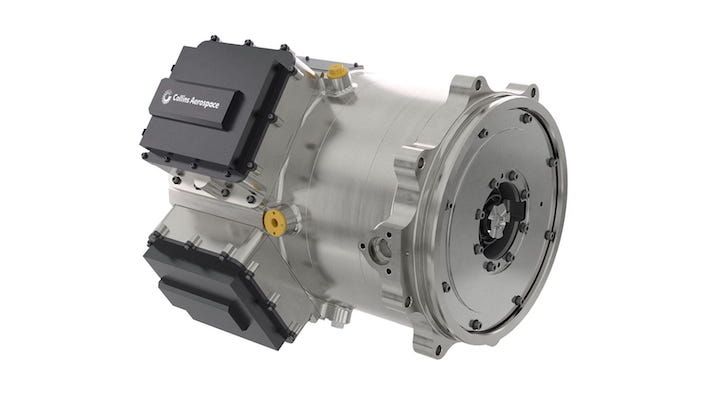
The electric motor will provide extra power during take-off and climb, allowing the fuel-burning engine to be optimized for cruise efficiency. The new technology will also be designed to run on 100% Sustainable Aviation Fuel.
Ground testing of the hybrid-electric Dash 8 aircraft is expected to start later this year and flight testing in 2024.
“Our hybrid-electric flight demonstrator program is leveraging and attracting expertise from leading aerospace and research organizations in Canada and around the world,” said Jean Thomassin, executive director of new products and services, P&W. “By optimizing the performance of the propulsion system for greater efficiency, hybrid-electric technology provides a key pathway to setting new standards for sustainability in aviation, across a range of different applications.”
Adrian Schaffer, president of emerging mobility at Ricardo said, “This project will help us build on our existing reputation for the innovative design and delivery of future-forward solutions for aerospace customers, creating clean, efficient, and integrated propulsion systems for next generation aircraft and building on our vision of creating a safe and sustainable world.”
Collins plans to conduct future testing of the motor and motor controller at The Grid, a 25,000 square foot electric power systems lab it is building at its facility in Rockford, Illinois. The Grid is expected to be fully operational in 2023.
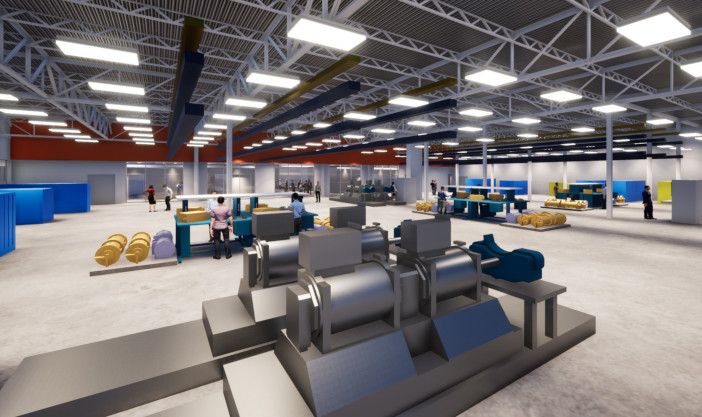
“We are developing sustainable hybrid-electric propulsion technologies that will play an integral role in helping the aviation industry reduce carbon emissions to net-zero by 2050,” said Henry Brooks, president, power and controls for Collins Aerospace. “Together, we have the opportunity to truly redefine aerospace with greener solutions that will benefit not only our industry, but our world as a whole.”


